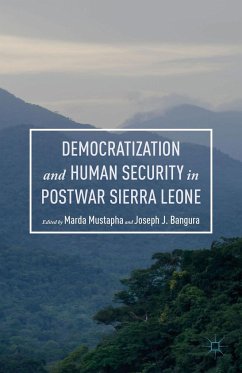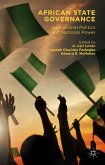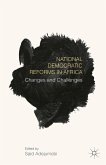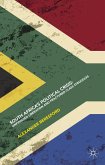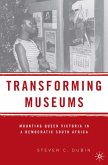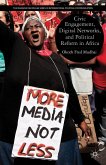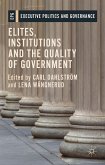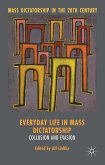This edited collection is the first book-length project to undertake a multidisciplinary study of democratization and human security in the post war nation of Sierra Leone. The overarching theme is there is synergy of democratization and human security which makes it imperative for the state to foster and enhance the realization of these concepts in postwar Sierra Leone. The book is divided into two broad thematic sections. The first section deals with democratization with a critical examination of the creation and instrumentality of institutions largely considered a necessity for democracy to take hold in a country. The second section delineates human security or the lack thereof in key areas of political, social and economic life. Though the book is specific to Sierra Leone, African countries and indeed countries transitioning to democracy around the world, scholars and practitioners of postwar or democratic transition studies would benefit from the concepts expounded in this collection.
Peter Albrecht, Danish Institute for International Studies (DIIS) and Copenhagen Business School, focusing on local level implementation of security sector reform (SSR) in Sierra Leone.
In your own words, please provide a short outline of the project.
The anthology explores Sierra Leone ten years after war with respect to a variety of areas and topics that are central to the recent history of political life and security in the country.
Project
Does this proposal offer a useful and/or original contribution to the field? Is it
addressing any new/emerging areas?
In my mind, the most important contribution of the proposal and book chapters that I've seen is that they provide a voice from Sierra Leone on Sierra Leone. A lot of academics from abroad have spoken of and made careers, analyzing and writing about the country (and still are), so I think for that reason, the project is very worthy of publication. It goes without saying, then, that I find the quality of the writing to be sufficiently high to be relevant for a larger audience.
The weakness of the proposal is that I am not sure what the 'unique contribution' is or at least I would have sold the project differently, arguing that the project brings new empirical material to the table, and that this is the contribution it makes. In that connection, I think it would be more new to NOT take a point of departure in the war or at least avoid trying to sell the anthology on the basis of Sierra Leone's war 12 years ago. I would also then develop that point as an entry point, because reducing the complexity of Sierra Leone politics nationally and locally to a question of the conflict does not do justice to how that system works.
I don't see much theoretical development, particularly in the proposal. This is not a problem for me, but I do think that some academics would find this problematic.
I personally also have a problem with statements such 'the book investigates some of the institutions created by the liberal democratization process', because that really also belittles the dynamics and processes of nation-state-formation both at the national and especially at the local level, where the power of chiefs is particularly strong.
While I actually do really like the chapter on chieftaincy, it's main arguments, that the way chiefs operate led to tension and possibly conflict and that peacebuilding must take the context into consideration, are not new (Fanthorpe, Richads, Jackson and others have made that argument). I don't have a problem with that, but it should nevertheless be taken into consideration.
Obviously, I have not seen the introduction to the book, and there might be an extremely interesting and sophisticated discussion of 'liberal peace' and its implementation, but the book as it's been presented to me comes across more as an empirical contribution than a theoretical one.
All of the above said, evaluating the manuscript/book proposal strictly with respect to the topic of discussing liberalization of the political system/security, I have not seen this. I am also learning something new about the different topics that are being discussed while reading the manuscript.
Does it adequately engage with recent scholarship? Does it take existing scholarship forward?
This relates to the point above about taking the war as a starting point. To my mind, it is becoming increasingly difficult (and uninteresting) to say something new about the conflict (especially if discussing why it started in the first place). Obviously, this particular piece of work looks at Sierra Leone a decade down the road, and as stated above, I would like the analysis and the whole presentation of the book to put less emphasis on the war. I won't make that point again.
While I think that the book proposal does a good job of outlining competing volumes in the latter part, it does not really make references in the first half. It does not really discuss this literature or make r
In your own words, please provide a short outline of the project.
The anthology explores Sierra Leone ten years after war with respect to a variety of areas and topics that are central to the recent history of political life and security in the country.
Project
Does this proposal offer a useful and/or original contribution to the field? Is it
addressing any new/emerging areas?
In my mind, the most important contribution of the proposal and book chapters that I've seen is that they provide a voice from Sierra Leone on Sierra Leone. A lot of academics from abroad have spoken of and made careers, analyzing and writing about the country (and still are), so I think for that reason, the project is very worthy of publication. It goes without saying, then, that I find the quality of the writing to be sufficiently high to be relevant for a larger audience.
The weakness of the proposal is that I am not sure what the 'unique contribution' is or at least I would have sold the project differently, arguing that the project brings new empirical material to the table, and that this is the contribution it makes. In that connection, I think it would be more new to NOT take a point of departure in the war or at least avoid trying to sell the anthology on the basis of Sierra Leone's war 12 years ago. I would also then develop that point as an entry point, because reducing the complexity of Sierra Leone politics nationally and locally to a question of the conflict does not do justice to how that system works.
I don't see much theoretical development, particularly in the proposal. This is not a problem for me, but I do think that some academics would find this problematic.
I personally also have a problem with statements such 'the book investigates some of the institutions created by the liberal democratization process', because that really also belittles the dynamics and processes of nation-state-formation both at the national and especially at the local level, where the power of chiefs is particularly strong.
While I actually do really like the chapter on chieftaincy, it's main arguments, that the way chiefs operate led to tension and possibly conflict and that peacebuilding must take the context into consideration, are not new (Fanthorpe, Richads, Jackson and others have made that argument). I don't have a problem with that, but it should nevertheless be taken into consideration.
Obviously, I have not seen the introduction to the book, and there might be an extremely interesting and sophisticated discussion of 'liberal peace' and its implementation, but the book as it's been presented to me comes across more as an empirical contribution than a theoretical one.
All of the above said, evaluating the manuscript/book proposal strictly with respect to the topic of discussing liberalization of the political system/security, I have not seen this. I am also learning something new about the different topics that are being discussed while reading the manuscript.
Does it adequately engage with recent scholarship? Does it take existing scholarship forward?
This relates to the point above about taking the war as a starting point. To my mind, it is becoming increasingly difficult (and uninteresting) to say something new about the conflict (especially if discussing why it started in the first place). Obviously, this particular piece of work looks at Sierra Leone a decade down the road, and as stated above, I would like the analysis and the whole presentation of the book to put less emphasis on the war. I won't make that point again.
While I think that the book proposal does a good job of outlining competing volumes in the latter part, it does not really make references in the first half. It does not really discuss this literature or make r

